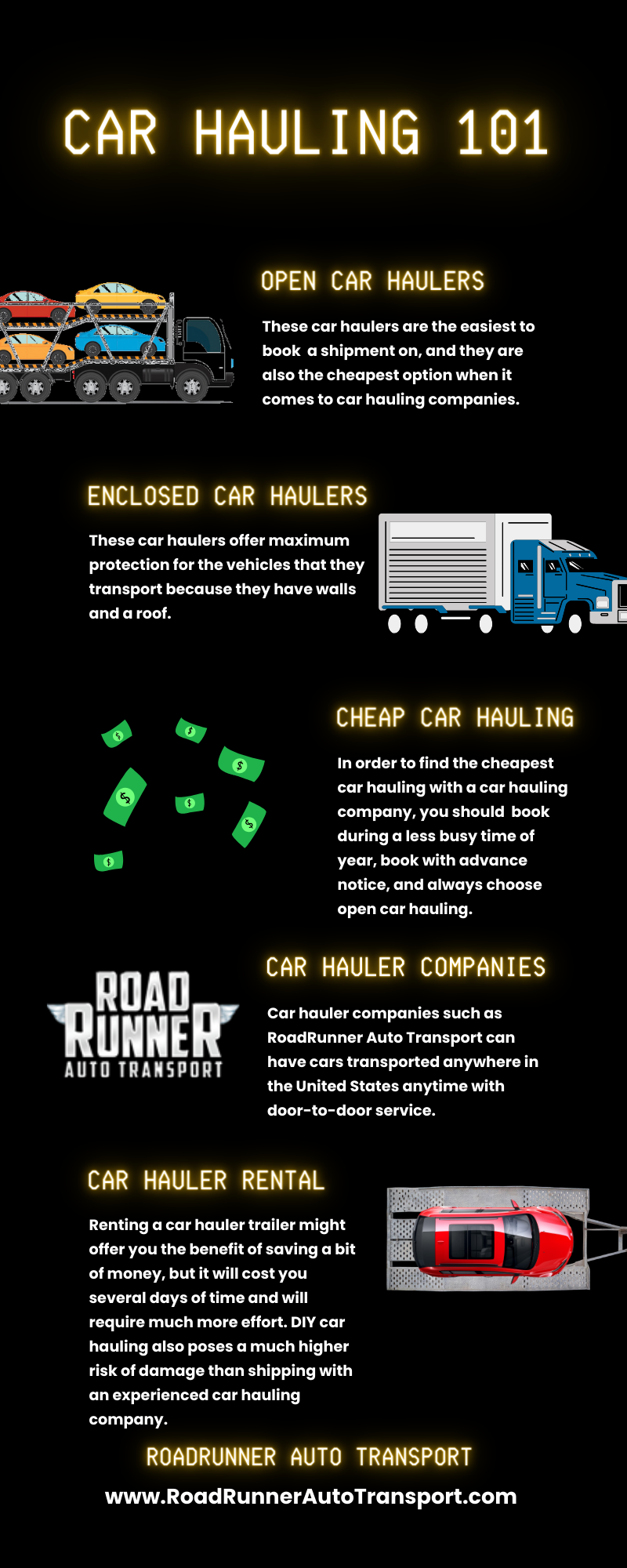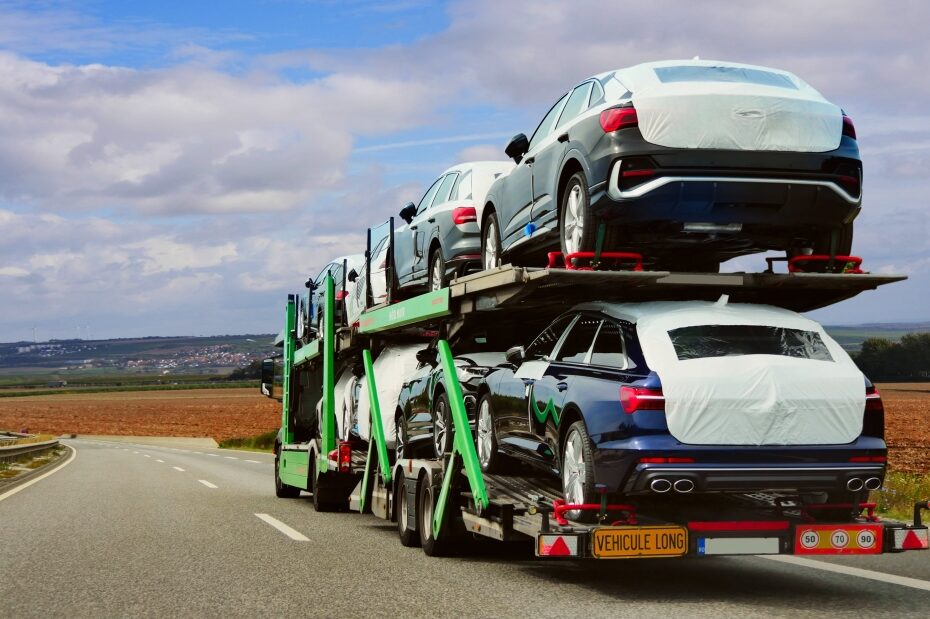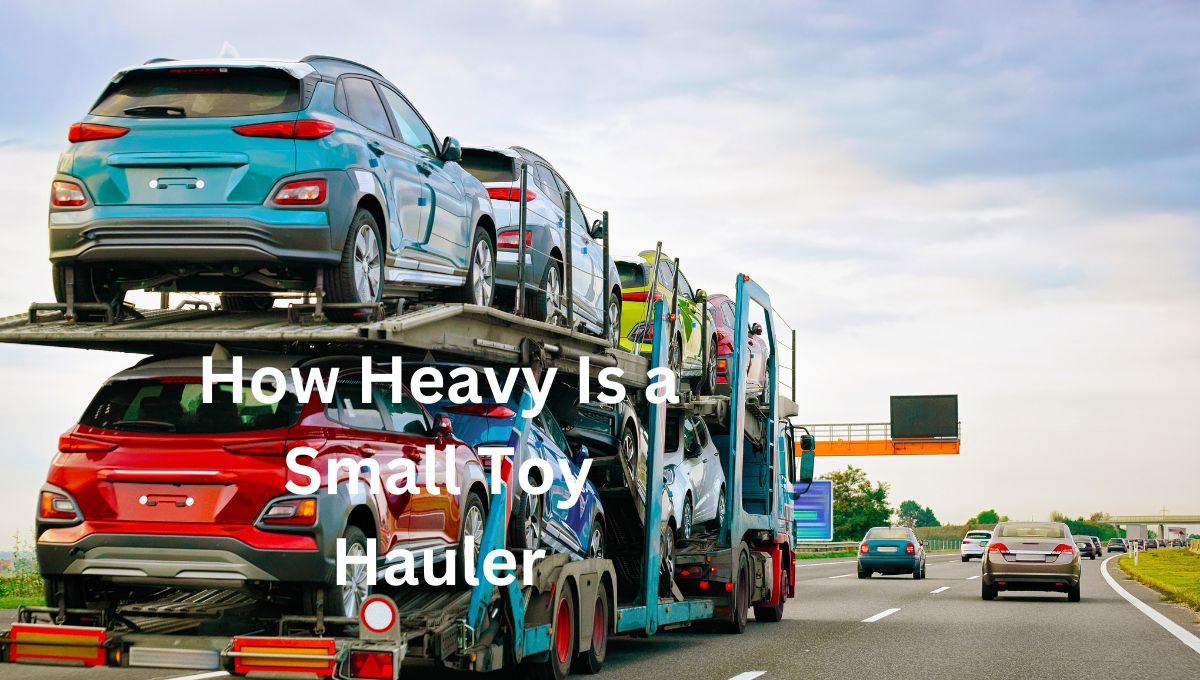To start a car hauling business, obtain the necessary licenses and insurance. Next, acquire a suitable vehicle and establish a marketing strategy.
Starting a car hauling business can be a lucrative endeavor if approached with meticulous planning. Entrepreneurs must navigate the maze of regulations and obtain proper commercial driver’s licenses (CDL) along with comprehensive insurance to protect their assets and clients’ vehicles.
Choosing the right type of hauler, such as an open trailer or an enclosed carrier, is crucial, depending on the target market and types of vehicles you plan to transport. Strategic marketing efforts must also be initiated to build a strong client base. Networking with car dealerships, auto auction houses, and offering excellent services will be key to securing repeat business and referrals in this competitive niche. Establishing a robust online presence through a professional website and social media platforms will drive potential customers to your car hauling service. It’s important to consistently deliver reliability and safety, as these are the cornerstones that will anchor a successful car hauling business.

Credit: nxautotransport.com
Entering The Car Hauling Industry
Starting a car hauling business can be a lucrative venture for those with a passion for the automotive industry and logistics. With the ongoing need for vehicle transport across cities and states, car hauling offers a valuable service.
Why Choose Car Hauling?
The car hauling sector stands out due to its specialized nature.
- High Profit Margins: With an effective strategy, car hauling can yield substantial profits.
- Consistent Demand: Dealerships and individuals always need car transport services.
- Niche Market: Specializing in car hauling sets you apart from general freight haulers.
Market Demand And Growth Potential
Analyzing market trends is critical for success in car hauling.
| Year | Market Size | Forecast Growth |
|---|---|---|
| 2023 | $12 Billion | 3.5% |
| 2024 | $12.5 Billion | 4% |
| 2025 | $13 Billion | 4.5% |
The data suggest an upward trend for car hauling businesses.
This trajectory shows positive growth in the coming years, emphasizing the potential this industry holds.
Crafting A Detailed Business Plan
Embarking on the journey of starting a car hauling business requires meticulous planning and a clear vision. A well-crafted business plan is your roadmap to success, outlining every detail from your objectives to the finances needed to jumpstart your venture. Let’s break down the essentials for structuring your business plan.
Setting Business Objectives
Identifying clear, actionable goals is crucial for your car hauling business’s future. Begin by listing your short-term and long-term objectives. Whether it’s the number of vehicles you aim to transport monthly or the geographic range you plan to cover, establishing these targets will guide your business decisions.
- Determine market demand and set realistic targets.
- Focus on specific milestones for growth.
- Keep objectives measurable and time-bound.
Assessing Financing Options
Starting a car hauling business means significant upfront investment. Research your financing options thoroughly. Will you seek a bank loan, find investors, or use personal savings? Outline various scenarios in your business plan to show you are prepared for this financial commitment.
| Financing Source | Pros | Cons |
|---|---|---|
| Bank Loan | Structured payment plans | Interest rates |
| Investors | Additional expertise and networks | Profit sharing |
| Personal Savings | No debt incurred | Personal financial risk |
Creating A Roadmap For Success
A successful business plan acts as a step-by-step guide for launching and growing your business. This section should detail every phase of your car hauling business, from licensing and acquiring the right equipment to marketing strategies and day-to-day operations. Include detailed timelines for each phase, so you stay on track.
- Sourcing equipment and insurance.
- Developing marketing and sales plans.
- Building a customer service strategy.
- Maintaining and scaling business operations.
Understanding Legal Requirements
Starting a car hauling business means knowing the rules. You need the right papers. It is like a puzzle. Find all pieces and your business runs smooth.
Securing The Necessary Licenses
Your business needs licenses to operate. This is not a drill. Car hauling is serious, and the government agrees.
- Commercial Driver’s License (CDL): Must-have for drivers. Proves you can handle big haulers.
- Motor Carrier (MC) Number: Your business ID. Shows you have permission to haul.
- US Department of Transportation (DOT) Number: Safety first. This number keeps track.
- FMCSA Registration: Federal Motor Carrier Safety Administration checks your details.
States might have more rules. Check local departments. Be prepared. Each license takes time and money. Plan accordingly.
Navigating Insurance Policies
Accidents happen. Insurance keeps you safe. It is not just about fixing trucks. It protects your business.
| Type of Insurance | Why You Need It |
|---|---|
| Liability Insurance: | Covers damages if your trucks cause accidents. It is a must. |
| Cargo Insurance: | Protects the cars you haul. Clients trust you more. |
| Physical Damage Insurance: | Fixes or replaces your own trucks. Keep your business rolling. |
Each truck loaded with cars is valuable. Get enough coverage. Sit with an insurance agent. They help you choose.

Credit: www.roadrunnerautotransport.com
Investing In Equipment And Technology
Thriving in a car hauling business hinges on your investments in equipment and technology. Robust and efficient gear accelerates your business success. Tech-savvy tools streamline operations. Embrace these critical components to launch a car hauling venture that stands out.
Choosing The Right Hauling Vehicles
Your choice of hauling vehicles impacts your business’s backbone. Select trucks that balance power, reliability, and cost-effectiveness. This choice defines your service capacity and business scalability.
- Assess Weight Capacity: Pick trucks that handle your typical load weight.
- Engine Power: Ensure it meets the demands of long-distance hauling.
- Fuel Efficiency: Opt for models that offer better mileage to save on costs.
- Brand Reputation: Choose brands known for durability and serviceability.
| Truck Feature | Benefits |
|---|---|
| Multiple Car Capacity | More vehicles per trip, higher revenue |
| Modern Safety Features | Fewer accidents, reduced insurance costs |
| GPS Tracking | Efficient route management, client trust boost |
Adopting Industry-specific Software
Digital tools help manage your car hauling business effectively. From scheduling deliveries to tracking your fleet, software elevates your operational fluency.
- Dispatch and Scheduling Software: Organize loads and routes for maximized efficiency.
- Fleet Tracking Solutions: Monitor your vehicles in real-time to ensure timely deliveries.
- Maintenance Alerts: Stay ahead with vehicle servicing, keeping your fleet road-ready.
Incorporate software that integrates with customer relationship management (CRM). It helps in maintaining excellent customer rapport. Ensure the software is easy to use. Your team should adopt it with minimal training.
Marketing Your Car Hauling Service
Launching a car hauling business needs more than trucks and trailers. People must know about your service. Let’s explore successful marketing tactics to drive your business into the fast lane.
Building A Brand Identity
Your brand is your promise. It tells clients what they can expect from your services. A strong brand stands out in a crowded market. Create a memorable logo. Choose a catchy name. These elements will represent your business everywhere.
Here are steps to build your brand:
- Develop a logo: Hire a professional or use online tools. It must resonate with car transport clients.
- Select a color scheme: Use it on all your materials. Consistency is key.
- Create a tagline: Keep it short and punchy. It should convey your value.
- Uniforms and truck decals: They act as moving billboards. Invest in them.
Leveraging Digital Marketing Strategies
Online presence is crucial. It helps clients find you easily. A well-designed website showcases your service. SEO ensures your site ranks high on search engines.
Effective digital strategies include:
- Website optimization: Focus on speed and mobile friendliness.
- Search Engine Optimization (SEO): Use keywords that potential customers search for.
- Social media engagement: Share your journeys, customer reviews, and behind-the-scenes looks.
- Email campaigns: Keep clients updated with offers and news. Build loyalty.
Networking In The Automotive Industry
Connections lead to contracts. Attend industry events. Meet car dealers, auctioneers, and other transporters. Exchange business cards. Follow up with new contacts. Join relevant online forums and groups. Share your expertise. Always be professional online.
Here’s how to network effectively:
| Networking Activity | Tips for Success |
|---|---|
| Auto trade shows | Prepare a pitch. Be ready to discuss your services. |
| Online communities | Contribute valuable insights. Don’t just self-promote. |
| Local business meetings | Form partnerships with businesses in related sectors. |

Credit: citizenshipper.com
Managing Operations And Logistics
Managing operations and logistics in a car hauling business involves careful planning and execution. An efficient operation ensures timely deliveries, maintains safety standards, and provides exceptional customer service. To accomplish this, focus on three main areas: scheduling, safety protocols, and customer satisfaction.
Streamlining Scheduling And Dispatch
Smart scheduling is key to success in the car hauling industry. Use software to optimize routes and avoid delays. Automating dispatch allows for:
- Real-time tracking
- Efficient route management
- Quick communication with drivers
Ensure drivers know their schedules in advance. This reduces confusion and increases productivity.
Implementing Safety Protocols
Safety cannot be compromised. Conduct regular vehicle checks to ensure:
| Vehicle Part | Checklist Action |
|---|---|
| Tires | Inspect for wear and pressure |
| Brakes | Check for proper function |
| Lights | Ensure all are working |
Training sessions for drivers are crucial. Focus on safe loading and driving practices.
Customer Service Excellence
Happy customers mean repeat business. Respond promptly to inquiries and concerns. Deliver cars on time. Feedback helps to:
- Improve services
- Fix issues quickly
- Build trust with clients
Reflect customer importance in every interaction. Aim for positive experiences that encourage loyalty.
Frequently Asked Questions For How To Start Car Hauling Business
What Is A Car Hauling Business?
A car hauling business involves transporting vehicles from one location to another, typically using a specialized trailer. Business owners work with car dealerships, manufacturers, or individual customers to safely move cars for relocation, sales, or delivery after online purchases.
How Much Does Starting Car Hauling Cost?
Starting a car hauling business can range from $10,000 to over $100,000. Costs account for insurance, the purchase or lease of a truck and trailer, permits, and licensing. Additional funds may be needed for marketing and operational expenses during the initial phase.
Is Car Hauling In High Demand?
Yes, car hauling services are in high demand. With the growing online car sales market and frequent relocations, there’s a consistent need for vehicle transportation. This demand makes car hauling a sustainable business option with potential for growth.
How Do I Get Clients For Car Hauling?
To attract clients, network with auto dealerships and auction houses, create a website, and utilize social media for marketing. Providing excellent service and maintaining a good reputation delivers repeat business and referrals. Registering with load boards can also help find potential clients.
Conclusion
Embarking on a car hauling journey can seem daunting, yet with the right steps, success is reachable. Ensure legal compliance, invest in quality equipment, and focus on networking. Remember, customer satisfaction drives growth. Your entrepreneurial spirit, paired with this guide, paves the way to a prosperous car hauling venture.
- How to Diagnose Bad Strut Mounts: Expert Tips for Quick Fixes - May 16, 2024
- How to Bypass Blower Motor Relay: 7 Expert Techniques - May 16, 2024
- How to Easily Check Ecu Ground: Essential Steps for Optimal Performance - May 16, 2024

